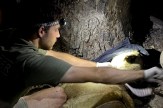After ceasefire deal, how can mediators create a lasting peace in Gaza? Experts unravel the task
The panel at Northeastern’s Boston campus, titled “The Future of the Middle East Peace Process,” tackled the prospect for peace in the region.
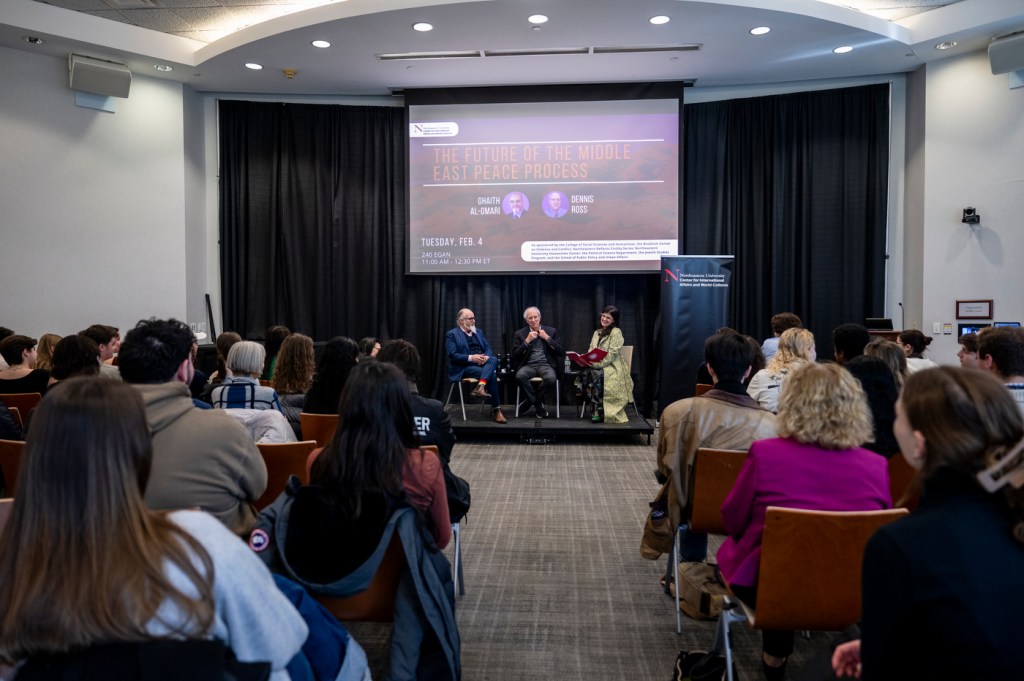
As talks over how to usher in the second phase of the Gaza ceasefire deal commence, experts gathered on Northeastern’s Boston campus to highlight one aspect of the process: the role of mediators in shaping peace.
As part of an ongoing series, the Center for International Affairs and World Cultures brought together two thinkers who have been intimately involved with the Middle East peace process over the decades: Ghaith al-Omari, former executive director of the American Task Force on Palestine, and Dennis Ross, the William Davidson distinguished fellow at the Washington Institute for Near East Policy.
The panel, titled “The Future of the Middle East Peace Process,” delved into the prospect for peace in the region — and the vital work of mediation.
“Our invited speakers and affiliated experts offer context and expertise derived from history, culture, identity and policy to explore all these matters,” said Denise Garcia, a Northeastern professor of political science and international affairs. “The center is well-positioned to be a hub for analysis of global security issues, policy solutions.”
The talk comes a little over two weeks after Israel and Hamas worked out a three-phase ceasefire plan that calls for a partial Israeli withdrawal from Gaza and the exchange of Israeli hostages and Palestinian prisoners. But just as the truce raises hopes that an end to the 16-month war could be near, the speakers noted how despair and trauma — deepened by the war — dims prospects for a long-term peace.
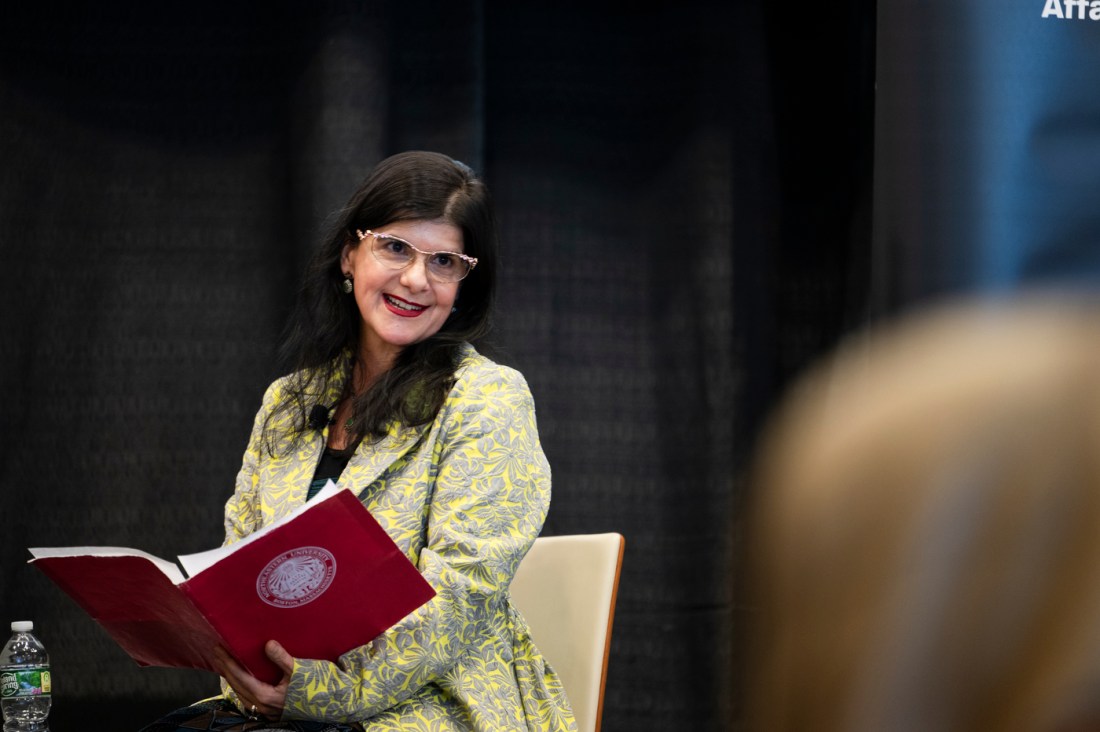
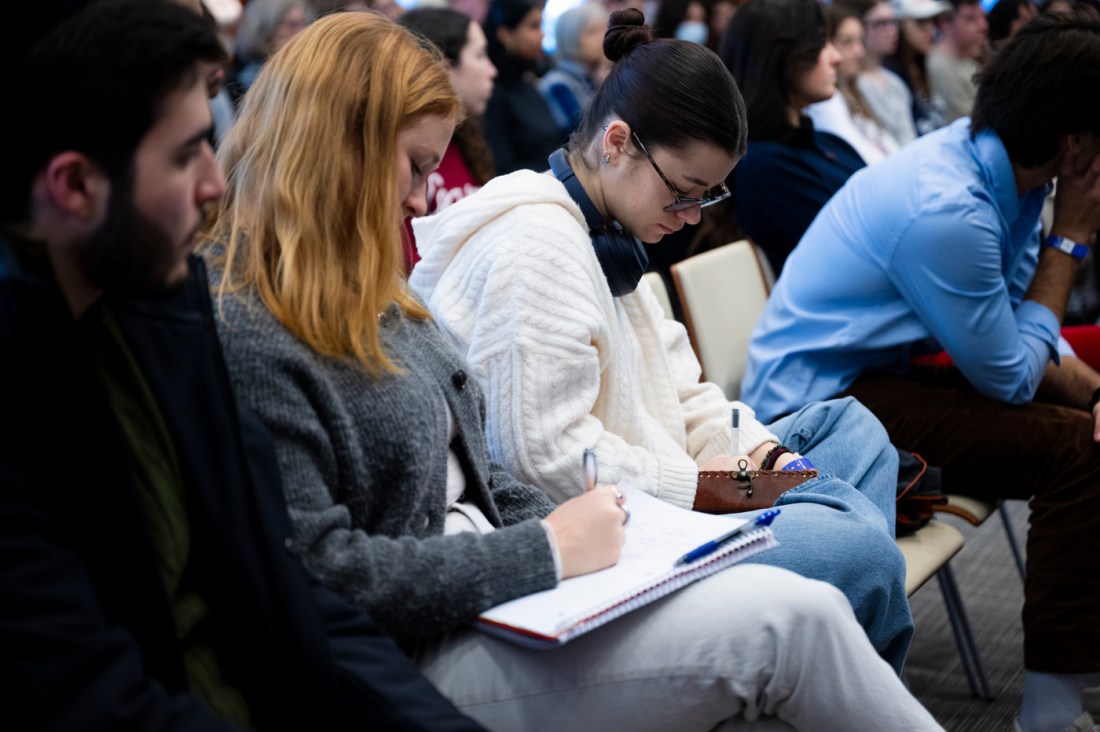

For the mediators, earlier decades were charged with a sense of optimism.
“In the year 2000, we actually thought we were going to succeed,” Ross said. “We thought we were going to end the conflict and we came very close to doing so, much closer than people realize. But we’re in a world that is completely different from that today.”
Because of the trauma experienced in the wake of Oct. 7, mediators now face the tough task of simply getting the parties to the table — to acknowledge each other’s suffering, Ross said. Diplomatic prospects for a shared peace, he said, are colored not just by “a loss of hope, but by a loss of the sense of possibility,” Ross said.
“If anyone thinks that we can just get both sides back to the negotiating table and produce an understanding — no, you can’t,” Ross said.
The mediators who helped shepherd the Israel-Gaza ceasefire deal include the United States, Egypt and Qatar, whose role has been cited by some as instrumental — notable for its “soft power” diplomatic approach.
For those invested in a peaceful future, what does the work of mediation look like? Ross said part of the task is “to condition both sides” to realize that “you can’t get what you need and want unless you address what the other side needs and wants.” It means dispelling “fantasies” that one or another side can “win” by expelling a group of people, as some Israelis believe, or by resisting until Israel capitulates, as some Palestinians believe, Ross said.
“They’re both wrong,” he stressed. “Israelis aren’t going anywhere, and Palestinians aren’t going anywhere.”
Featured Posts
He continues: “But that doesn’t mean that you throw up your hands and do nothing, because the one thing that does is it creates a self-fulfilling prophecy that there is no hope, that there is no possibility.”
Because of competing interests and uncountable political “fractures” between states and factions in the Middle East, al-Omari contends that the region can’t broker peace by itself. International partners, such as the U.S., inevitably end up playing an important role in shaping the process.
Contrary to received wisdom, mediators are not neutral arbiters; they are, in one way or another, invested in the outcome, Ross said. It is precisely this genuine “emotional commitment” to the cause that “sustains” mediators over time, he said.
Without a clear-cut way toward peace — and after decades of failed attempts — mediators have to adopt different strategies, al-Omari said. Sometimes mediators have to engage in “tough love” and apply pressure to the parties; other times “embrace can be as effective, if not more effective than pressure.”
“I would add that there are no deals in historic conflicts without tough love,” Ross said. “Empathy gets to the point where you make a decision, but [the parties] don’t make that historic leap without understanding the consequences of saying no.”
“Things have changed,” al-Omari said. “If you zoom out, the architecture of the Arab world and the center of gravity has shifted. In the past, it used to revolve around Egypt and areas that are kind of steeped in ideology, steeped in a sense of grievance — and that colored Arab diplomacy.”
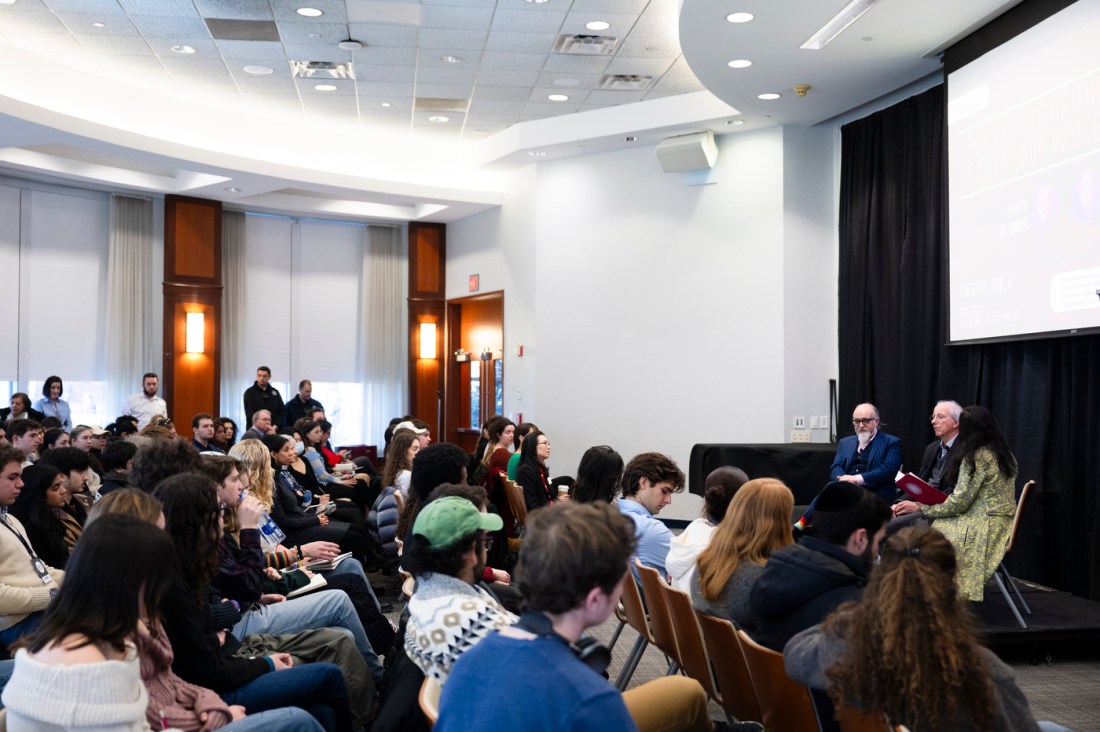
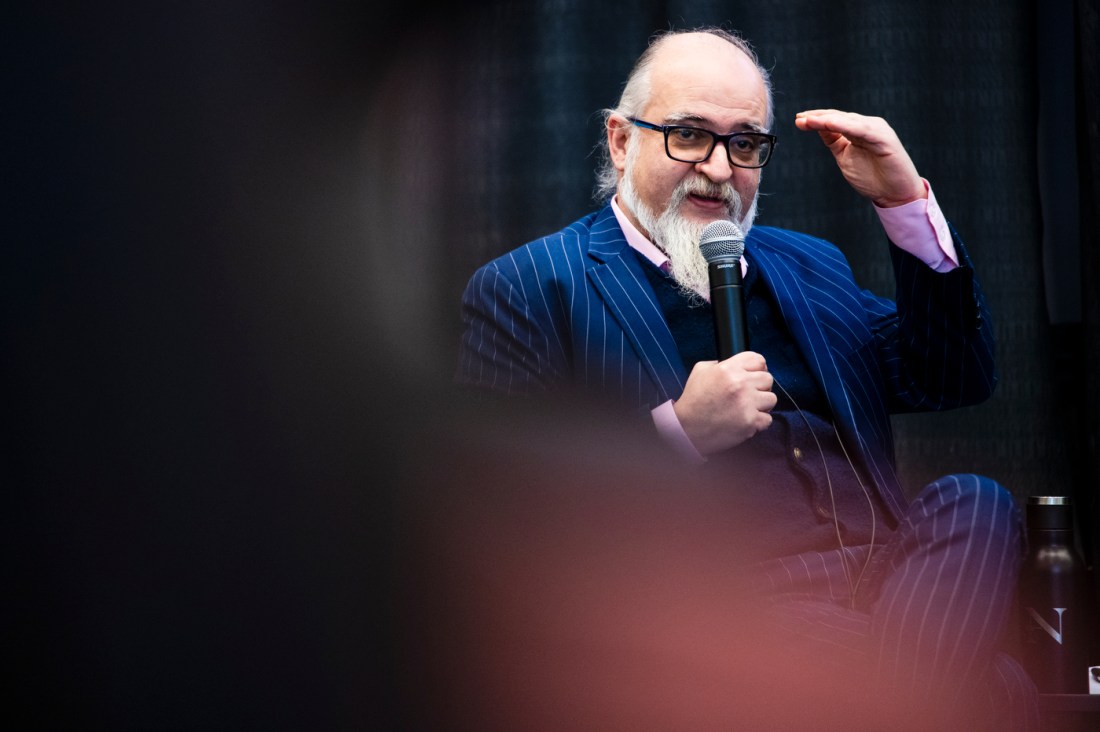
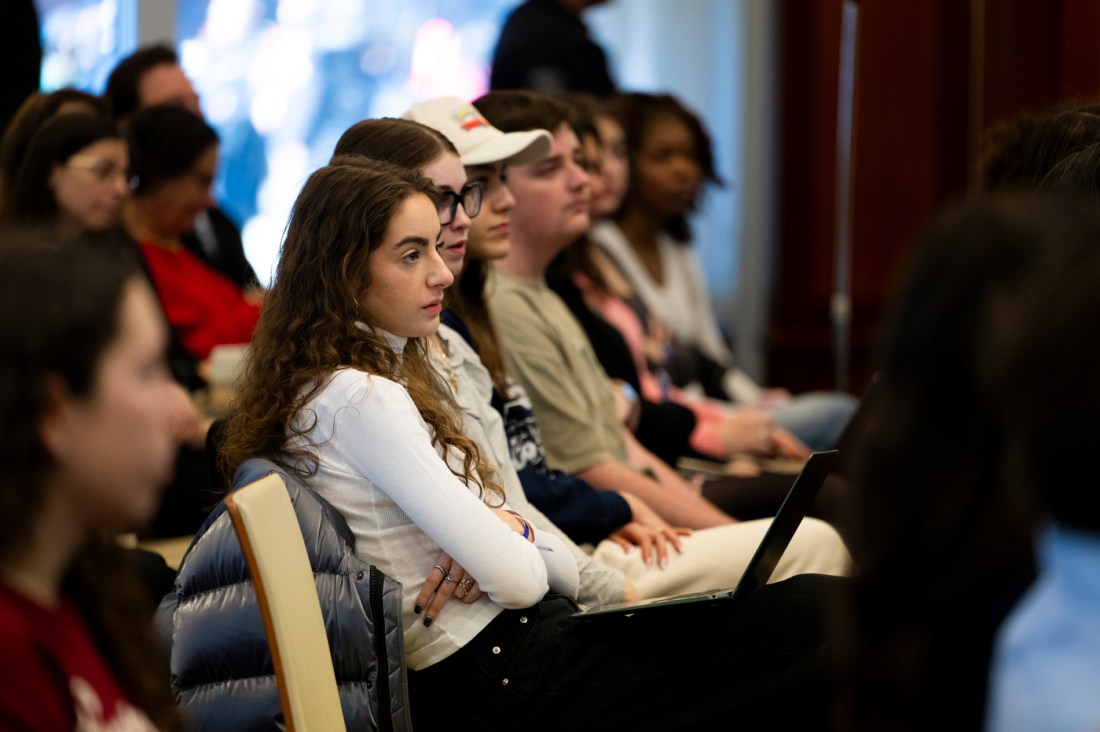
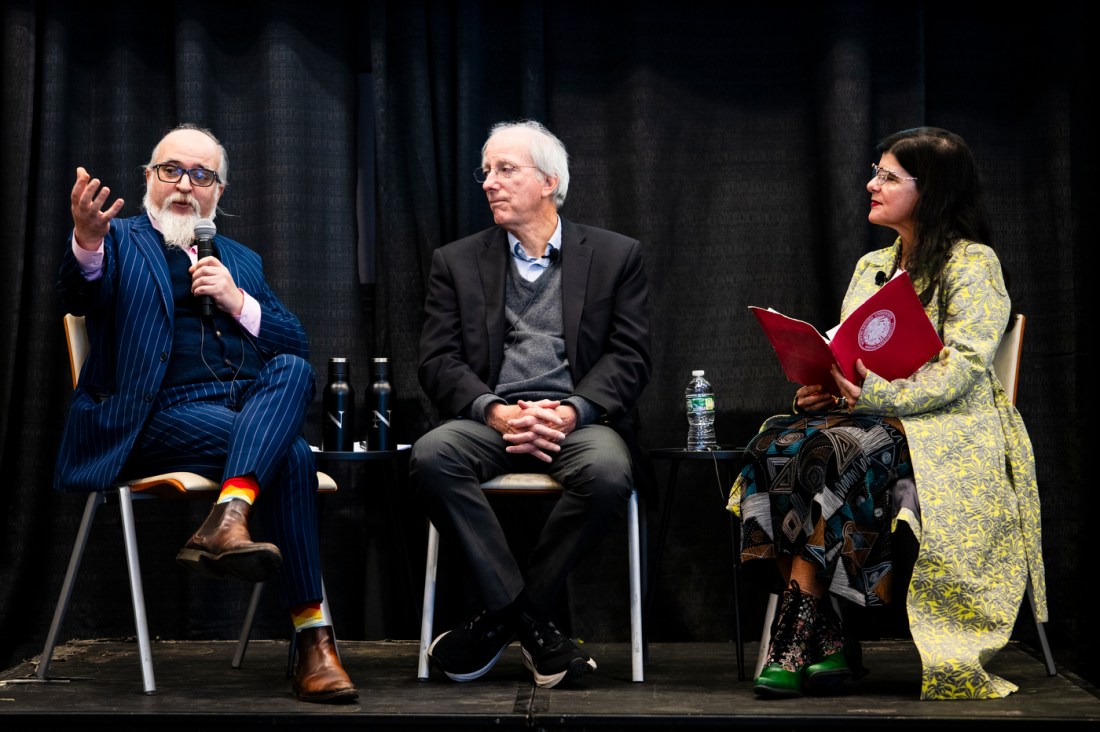
Now, al-Omari said the “center of gravity” has shifted toward the Gulf states: toward Saudi Arabia and the United Arab Emirates.
“You can feel a palpable energy, a forward-looking sense of let’s move away from ideology and figure out how to deliver on public security and prosperity,” he said.







